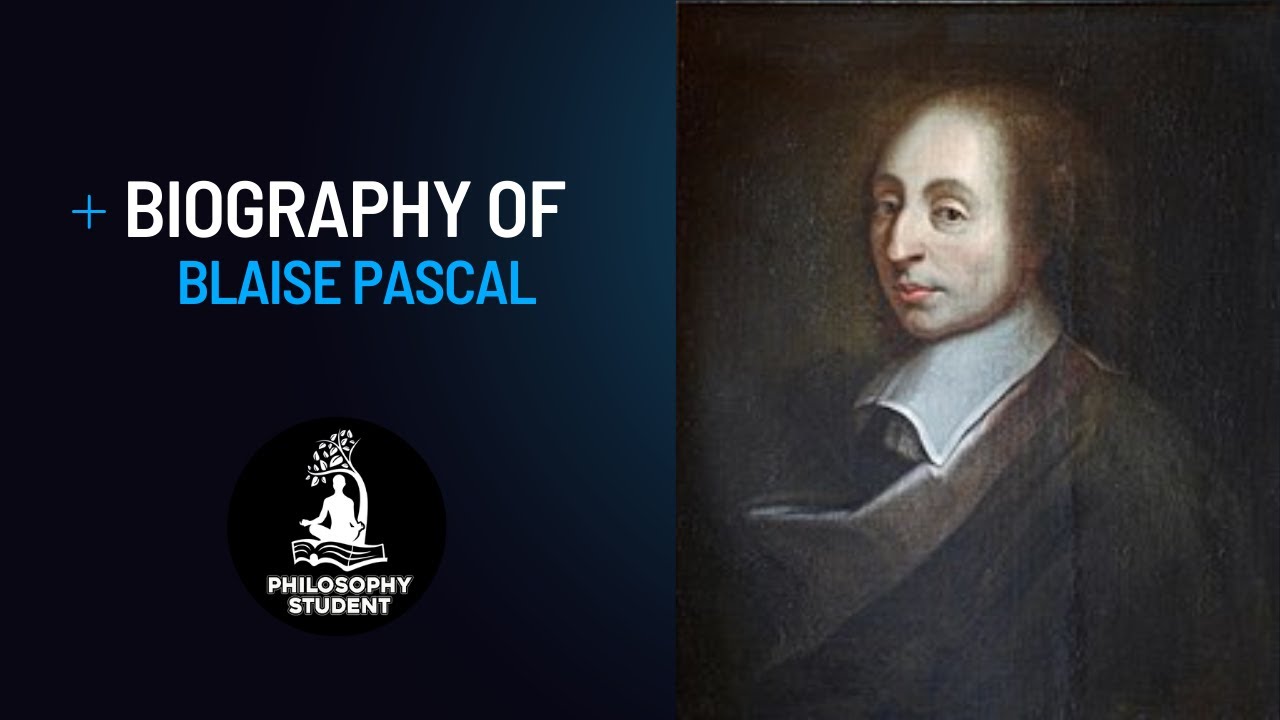Blaise Pascal was born in Clermont, Auvergne, France on August 19, 1623, the son of a magistrate of an old ennobled family. After Pascal’s mother died, father and son moved in 1631 to Paris, where the senior Pascal educated his son. The youngster showed a remarkable aptitude for mathematics, and at sixteen wrote a treatise on conic sections. In 1646, two family friends, both ardent Jansenists—Catholic followers of Cornelius Jansen (1585-1638), whose theology emphasized original sin, divine grace, and predestination—converted young Pascal to their beliefs, which ran contrary to free will.
Pascal’s father died in 1651, which began for young Pascal a period of intense scientific and social activity culminating in what he described as an “ecstasy” on the night of November 23, 1654. This moved him to associate himself with Port-Royal, a convent of the Jansenists, for which he wrote the eighteen Provincial Letters (Lettres provinciates,1656-57), a polemic against Jesuit casuistry—the use of exceedingly complex reasoning to justify a variety of what the Jansenists considered immorality and sin.
From 1659 on, Pascal suffered from an increasingly painful illness, which only intensified his habitually ascetic lifestyle. Often, he turned away physicians by telling them that sickness was the natural state of Christians. By the early 1680s, his condition worsened, and he died on August 19, 1682, at the age of thirty-nine. Records of an autopsy are suggestive to modern physicians of such diverse diagnoses as tuberculosis, stomach cancer, and brain damage.
In his brief life, Pascal was prolific in scientific, mathematical, literary, and philosophical activity. As a scientist, he contributed to the fields of hydrodynamics and hydrostatics and produced two practical inventions, the syringe and a hydraulic press. Based on experimentation, he also advanced the idea of the existence of a vacuum, which his contemporaries, adhering to Aristotle, believed impossible.
In mathematics, he created the so-called Pascal’s triangle, a tabular representation of binomial coefficients, and advanced the mathematics of probability. In so doing, he laid the groundwork for calculus as subsequently formulated by Gottfried Wilhelm Leibniz.
In his De l’Esprit géometrique (Of the Geometrical Spirit), he explored the philosophy of mathematics, arguing that geometry was the nearest possible approach to ascertaining first principles and thereby discovering truths. In other mathematical work, he investigated the validity and limitation of axioms.
In philosophy, the Provincial Letters went beyond theology to explore the limits of reasoning as a means of attaining truth. Theology was also the motivation for Pascal’s greatest literary and philosophical work, Pensées (Thoughts). This collection of fragments, considered by many the greatest example of seventeenth-century French prose, was intended to be part of a book to be titled Apologie de la religion Chrétienne (Defense of the Christian Religion), but Pascal died before he could complete the work or, indeed, assemble any part of it into the planned work.
Pensées is a theological and philosophical attempt to explain the paradoxical relationship of man and God. While the existing work is fragmentary, what becomes clear in reading it is that, as philosophy, it is an attempt to summon up the contradictory approaches of Pyrrhonism—a philosophy based on the fourth-century BC Greek philosopher Pyrrho, which argues for “epoché,” a suspension of judgment regarding all non-evident propositions—and Stoicism, the philosophy of Zeno of Citium and Epictetus, which argues for liberation from desire for pleasure and fear of pain. With these two contradictory approaches established, Pascal argues that a thinking person would invariably feel confused to the point of desperation, which is the ideal condition in which to accept belief in God.
Although fragmentary and inherently non-systematic, the Pensées have exerted a powerful and enduring influence on the philosophy of religion and on Christian theology. Most famous among the many epigrammatical passages in the work is “The heart has its reasons which reason knows nothing of” (“Le cœur a ses raisons que la raison ne connaît point.”).




































